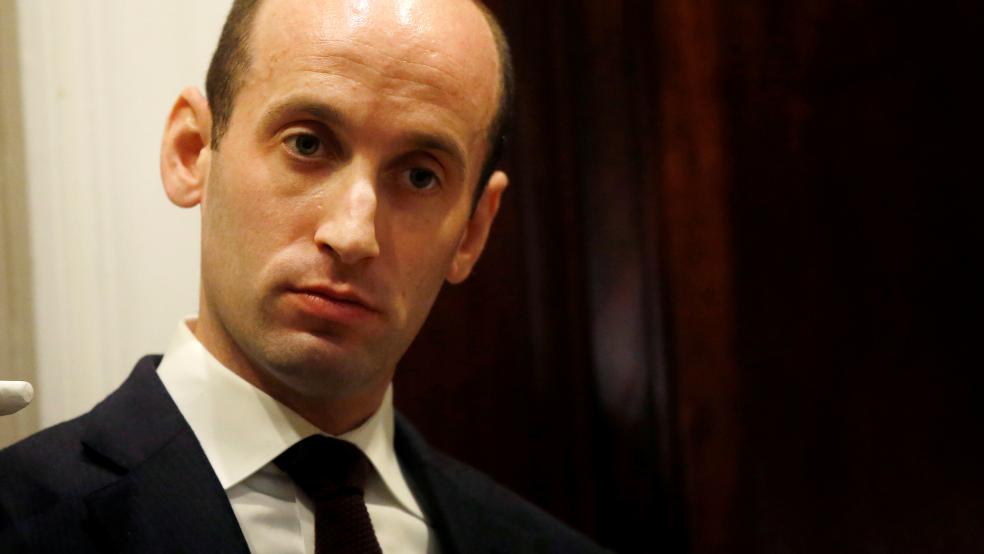The Trump administration is finalizing a proposal that would make it more difficult for legal immigrants to get citizenship or green cards if they have ever used public assistance programs including Obamacare, food stamps and children’s health insurance, NBC News’ Julia Ainsley reports. The plan would reportedly also limit citizenship for immigrants who received public assistance for their children, even if those children are already citizens.
The rationale: "The administration is committed to enforcing existing immigration law, which is clearly intended to protect the American taxpayer by ensuring that foreign nationals seeking to enter or remain in the U.S are self-sufficient,” a spokeswoman for the Department of Homeland Security told NBC. “Any proposed changes would ensure that the government takes the responsibility of being good stewards of taxpayer funds seriously and adjudicates immigration benefit requests in accordance with the law."
The proposal, which Ainsley calls part of White House senior adviser Stephen Miller’s plan to limit the number of migrants who get legal status, likely would not have to be approved by Congress.
The background: Immigration law has long held that an immigrant is to be denied permanent residence if he or she is likely to become a “public charge.” Guidelines in place since 1999 have defined the term narrowly as someone who is primarily dependent on the government for subsistence, either through cash assistance programs or by receiving long-term care at government expense. The existing guidelines specify that non-cash benefits such as Medicaid, the Children’s Health Insurance Program and food programs are not part of the “public charge” determination. The Trump plan would change that, defining the term more stringently.
What it means: “Using some public benefits like Social Security Insurance has already hindered immigrants from obtaining legal status in the past,” NBC’s Ainsley writes, “but the programs included in the recent draft plan could mean that immigrant households earning as much as 250 percent of the poverty level could be rejected.” Experts tell Ainsley that as many as 20 million immigrants could be affected by the Trump plan.
The research: “Overall, immigrants are less likely to consume welfare benefits and, when they do, they generally consume a lower dollar value of benefits than native-born Americans,” a CATO Institute study this year said.
The criticism: The reported Trump administration proposal drew sharp reproach from immigration advocates and others. "Any policy forcing millions of families to choose between the denial of status and food or health care would exacerbate serious problems such as hunger, unmet health needs, child poverty and homelessness, with lasting consequences for families' wellbeing and long-term success and community prosperity," the National Immigration Law Center said in a statement to NBC.
New York magazine’s Jonathan Chait argued that members of the middle class who get health insurance through their employer or Medicare are getting similar taxpayer-financed benefits — demonstrating that the Trump proposal is just an empty pretense: “Programs like Obamacare and CHIP simply extend the same regimen of subsidies and risk pooling to the low-income population that have already been granted to the middle class. To define people getting insurance this way as ‘public charges’ does violence to the concept.”
The Washington Post’s Paul Waldman and Greg Sargent write that the proposal is a clear sign of the administration’s white nationalist agenda — and one that can work by playing into prejudices Americans have about welfare: “There’s little doubt that these initiatives are born of the sincere contempt that President Trump, Stephen Miller, and others in the administration have for immigrants, particularly non-white ones,” they write. “The strategy is clear: portray legal immigrants as a drain on the system, taking advantage of hard-working people like you.”




